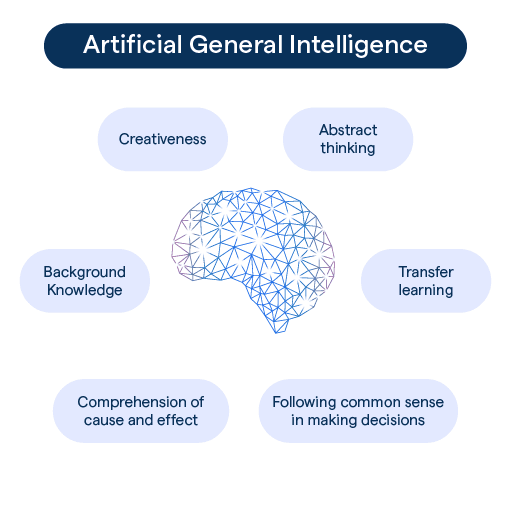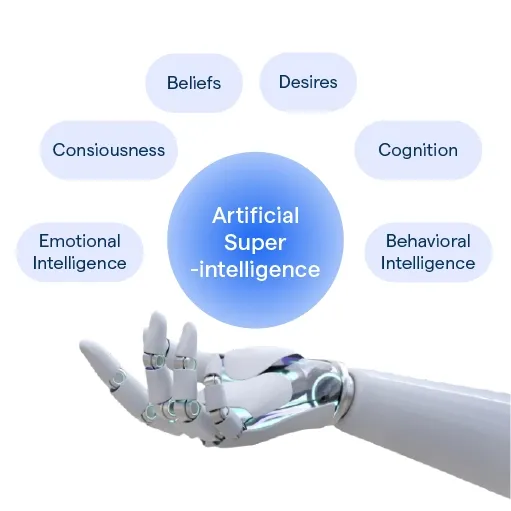Types of Artificial Intelligence
Types of Artificial Intelligence
There are generally three types of AI based on their capabilities and functions: Narrow AI (Weak AI), General AI (Strong AI), and Artificial Superintelligence. Here’s a breakdown of each type and how they are useful:
1.
Narrow AI (Weak AI)
- Definition:
Narrow AI is designed to perform specific tasks or a narrow range of tasks
within a limited context.
- Examples:
Voice assistants like Siri, Alexa, recommendation algorithms, image
recognition software, chatbots, and self-driving cars.
- Usefulness:
Narrow AI systems excel in performing predefined tasks with high accuracy
and efficiency. They are currently the most prevalent form of AI in use
today, impacting various industries such as healthcare, finance, customer
service, and transportation. Their usefulness lies in automating routine
tasks, enhancing decision-making processes, and improving operational
efficiency.
2.
General AI (Strong AI)
- Definition:
General AI refers to AI systems that possess human-like intelligence and
cognitive abilities. These systems can understand, learn, and apply
knowledge across a wide range of tasks and domains.
- Examples:
As of now, true General AI does not exist, but it is a theoretical concept
often depicted in science fiction.
- Usefulness:
The potential usefulness of General AI lies in its ability to perform any
intellectual task that a human can do, from reasoning and problem-solving
to creativity and social interaction. If developed ethically and safely,
General AI could revolutionize industries by offering unprecedented levels
of automation and innovation.
3.
Artificial Superintelligence
- Definition:
Artificial Superintelligence (ASI) is an advanced form of AI that
surpasses human intelligence in all aspects, including creativity, social
skills, and problem-solving.
- Examples:
This level of AI is purely hypothetical at present and is the subject of
philosophical and ethical debates.
- Usefulness:
The potential usefulness of ASI, if and when developed, is vast and could
lead to advancements in virtually every field, from science and medicine
to economics and governance. However, managing its impact on society and
ensuring alignment with human values would be critical considerations.
Summary
of Usefulness:
- Automation and Efficiency: All types of AI contribute to automation,
streamlining processes, and improving efficiency in various industries.
- Decision Support:
AI systems provide valuable insights and decision support through data
analysis and pattern recognition.
- Innovation and Creativity: AI has the potential to foster innovation by
automating routine tasks and freeing up human creativity for more
strategic endeavors.
- Improved User Experience: AI-driven technologies enhance user experiences
through personalized recommendations, better customer service, and
intuitive interfaces.
Considerations:
- Ethical and Safety Concerns: As AI becomes more advanced, ethical considerations
around data privacy, bias in algorithms, and the societal impact of
automation become increasingly important.
- Regulation and Governance: Developing frameworks for the ethical use and
regulation of AI technologies is crucial to ensure their safe and
beneficial deployment.
In conclusion, the usefulness of AI
spans from enhancing everyday tasks with Narrow AI to potentially revolutionizing
entire industries with General AI and Artificial Superintelligence, although
the latter two are still in the realm of theoretical possibility and subject to
significant ethical and technical challenges.





Comments
Post a Comment